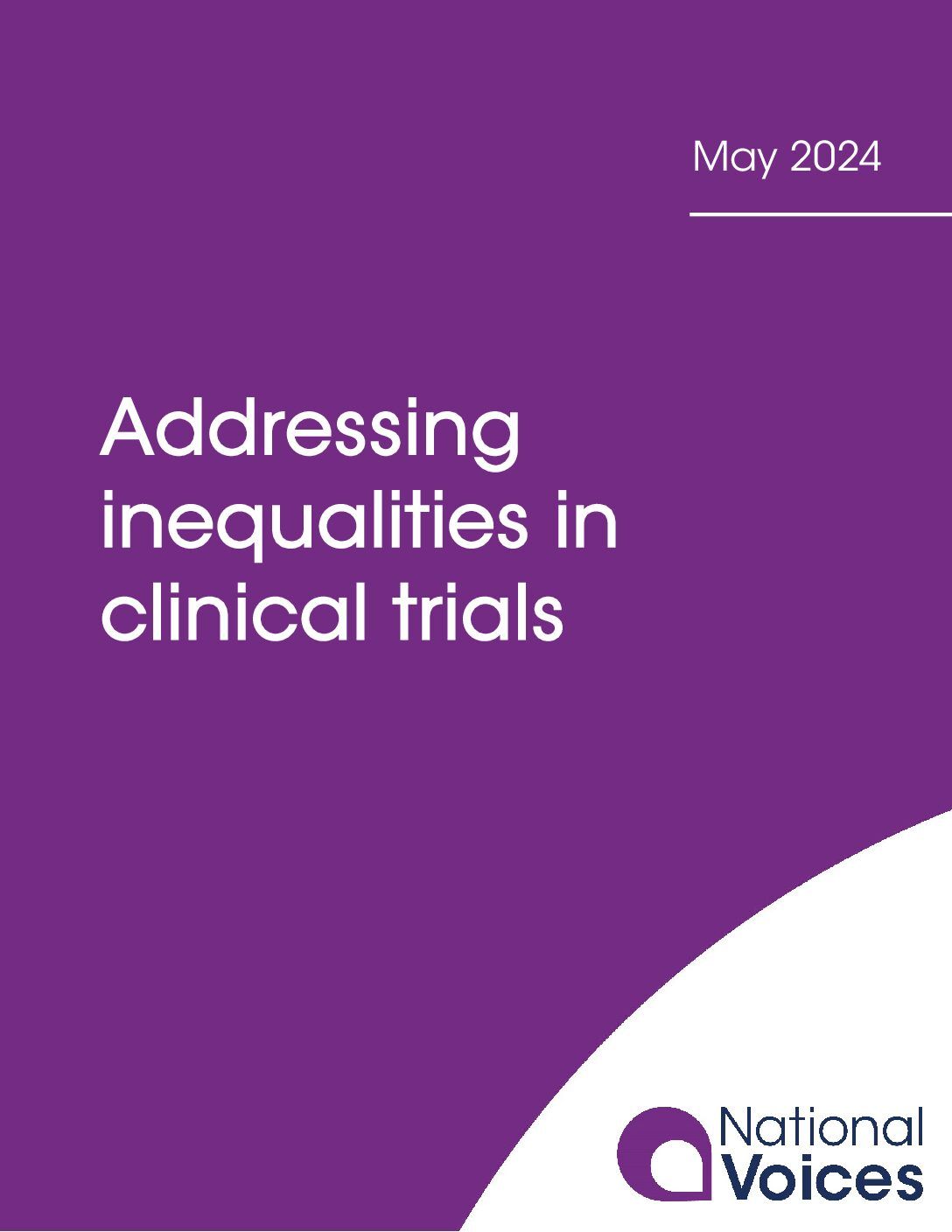
Addressing inequalities in clinical trials
- Communication and administration
- Health inequalities
- Lived experience
- Person-centred care
The lack of diversity of participants in clinical trials has long been recognised as a significant challenge. While the data is imperfect, it is widely accepted that the majority of trial participants are white, British and affluent; this is not representative of the diverse range of people affected by the conditions for which medications and procedures are usually being trialled. Fortunately, there is growing interest in, and commitment to addressing these barriers among pharmaceutical companies, researchers, patient groups and others.
Our work and findings
To inform the work currently underway to improve the representativeness of clinical and research participants, and to ensure that more people have the opportunity to participate in clinical and research trials, we undertook a consultation among our members and Lived Experience Partners.
18 people attended an online workshop – these were a mixture of professionals working with communities via health charities and people with lived experience of long-term health conditions and/or disability. A further five individuals were consulted individually in follow-up conversations.
Our report is the result of these discussions, and presents quotes from workshop participants alongside the key insights identified, and areas for future action, which fall under the following headings:
Barriers to participation in clinical trials
In our discussions, we acknowledged that the barriers to participation in clinical trials were different for different people, in different places, with different conditions and in different personal circumstances, and in relation to different trials.
However, we identified three overarching themes, which were common across groups and which arose in relation to variation across trials:
- Attitudinal barriers, including fear and mistrust from people and communities and failure from pharmaceutical and research companies to signal inclusion.
- Communication barriers, including a lack of outreach and awareness and digital exclusion.
- Practical barriers, including financial barriers, geographical barriers and a lack of support for carers.
Potential solutions
We identified seven key solutions to widen participation in clinical and research trials:
- Demystify research.
- Use a range of communications tools.
- Work with the Voluntary, Community and Social Enterprise (VCSE) sector and community groups.
- Address bias and discrimination across research.
- Give people a fair deal.
- Shift the power dynamics.
- Commit to co-production.
Taking action
There is much to be done to address inequalities in clinical and research trials and to improve inclusion and diversity across the clinical research world.
We identified five key areas for improvement:
- Build capacity across the system.
- Improve communication around research trials.
- Strengthen support for people who engage in research.
- Engage the VCSE sector.
- Shift the power dynamics by committing to co-production.
Shareable infographics
Alongside the report, we have developed two infographics. These are free to download and we would like to invite you to use them in your own work.
The infographics illustrate the key sections and themes from the report; Barriers to participation in clinical trials, potential solutions to these barriers and key five areas for improvement actions for pharmaceutical companies and researchers to take forward.
If you would like to read this report in an alternative format, please get in touch.
Acknowledgements
We would like to thank National Voices’ Associate Kate Jopling for her significant contributions on this project.
We would also like to thank our member organisations and people with lived experience for sharing their insights and inputting on this work, including The Nerve of My Multiple Sclerosis, Macular Society, TransActual, Thomas Pocklington Trust, Roma Support Group, South Asian Health Action, BHA For Equality, Blood Cancer UK, British Heart Foundation, Age UK, Rethink Mental Illness, National Voices’ Lived Experience Partners and others.
This work was made possible thanks to the generous contribution of Novartis who provided a grant towards this independent programme of work.